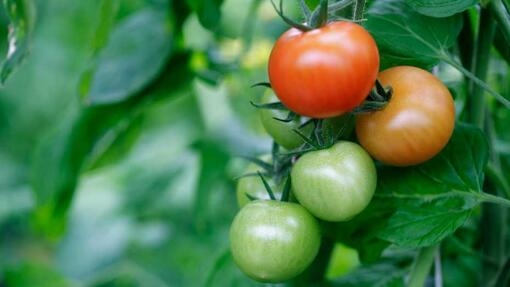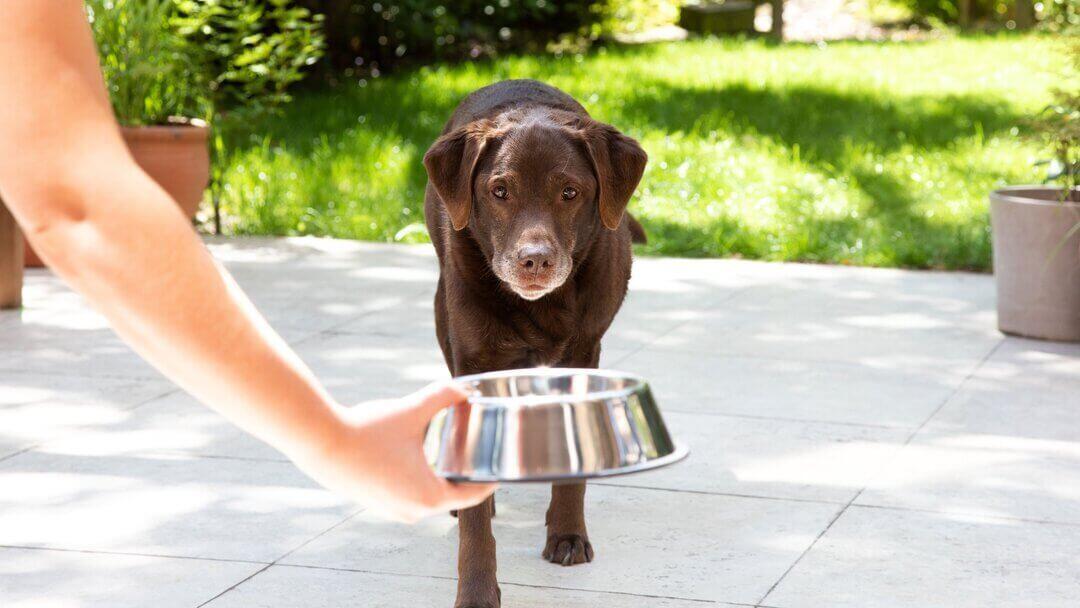
As pretty as plants can be, some plants are toxic to dogs. To keep your dog safe, It’s best not to keep these plants in your house, just in case curiosity gets the better of them and they decide to have a nibble.
See our list of plants poisonous to dogs so you can note which ones to stay away from.
Lilies
You may wonder whether lilies are poisonous to dogs. While some lilies are highly poisonous to cats, dogs are much less at risk. However, some lilies can cause irritation of the mouth and digestive tract, and others may cause digestive upset so we recommend avoiding them altogether, just to be safe. In case your dog comes into contact with one, you should know which ones are most likely to cause upset. We’ve listed these below but make sure to see our guide for more information.
- Peace Lily (severe mouth irritation).
- Calla Lily (severe mouth irritation).
- Rain Lily (gastrointestinal upset).
- Lily of the Valley (severely poisonous).
While lily of the valley isn’t a true lily (it’s actually a member of the asparagus family!), it’s worthy of a mention here, as it is highly toxic to dogs. The plant contains compounds called cardiac glycosides which can irritate the gastrointestinal tract and cause heart arrhythmias.
Remember, if your dog comes into contact with any of these, make sure to contact your vet.
Bluebells
Bluebells are a poisonous plant to our dogs, especially if they eat the bulbs. This is because the bulbs and fruit capsules contain toxic chemicals called glycosides. These may also be present in lower concentrations in other parts of the plant, including the petals and stem. All different types of bluebells are potentially toxic, even the ones that aren’t blue! It’s imperative to contact your vet if you think they’ve ingested any part of a bluebell.
Daffodils
Though they are a pretty spring flower, daffodils are poisonous plants to dogs as they contain a substance called lycorine, which can cause stomach issues. They also contain other harmful substances that can cause irritation of the mouth, skin and throat and there have even been fatal cases associated with the ingestion of bulbs. It’s best to ensure your dog avoids all contact with daffodils and make sure you contact a vet if you suspect any ingestion.
Ivy
Ivy is poisonous to dogs. Ivy doesn’t taste good to dogs so it’s unlikely that they will eat it in large amounts. However, if they do decide to have a bite or brush against the plant repeatedly, this can cause digestive upset and skin irritation.
This includes all kinds of ivy, such as:
- English Ivy.
- Poison Ivy.
- Devil's Ivy.
Tomato plant
You might know that ripe tomatoes are not poisonous to dogs, but did you know that the tomato plant is toxic to dogs? The stem, leaves, and even the unripe tomatoes contain harmful substances called solanine and tomatidine, with young plants having the highest concentration.
If you grow tomato plants, it’s best to fence them off where your dog cannot reach them. It is rare for tomato plants to cause severe signs and gastrointestinal upset is the most common consequence of ingestion.
Aloe Vera
You may have an aloe vera plant gracing your windowsill, but keep in mind that aloe vera is toxic to dogs if ingested because it contains saponins. These may cause skin irritation or can cause diarrhoea and vomiting which can lead to dehydration. Of course, dogs should not ingest aloe vera but it’s also best to avoid putting it on their skin just in case they lick it off. It’s not usually associated with severe signs, but if you think your dog has ingested any kind of aloe vera, make sure to contact your vet.
Geranium
Geraniums are popular flowers that are often planted in our gardens. However, it’s important to know that it’s a poisonous plant to dogs. This includes all parts of the plant – from the petals to the stem so it’s important that your dog stays away from them. If your dog brushes up against them, they could have some mild skin irritation. If they ingest a geranium, your dog will likely vomit. Always keep an eye on your dog and take them to the vet if you are concerned.
Mistletoe
Though we like to put mistletoe around the house at Christmas, it’s actually a poisonous plant to dogs. Mistletoe is mildly toxic to dogs but should be avoided to be safe. If your dog ingests mistletoe, they’re likely to vomit or drool, which could result in dehydration if severe or prolonged.
Eucalyptus
Some of us might like to grow and keep eucalyptus around the house, or even keep it as an essential oil. It’s important to know that eucalyptus (both plant and oil) is poisonous to dogs. Because it’s a gastrointestinal irritant, it will cause vomiting and diarrhoea. Ingestion of the essential oil tends to result in more severe signs and could even result in seizures. Ensure you contact your vet as soon as possible if you think your dog has eaten eucalyptus.
Primrose
Primroses are a common plant that we plant in our gardens, but they can be toxic to dogs if ingested, resulting in vomiting and diarrhoea. Primrose can also cause eye and skin irritation if your dog has been brushing up against them. Be sure to contact your vet if your dog has ingested this.
16 more poisonous plants to dogs to be aware of
- Autumn Crocus.
- Azalea.
- Elephant Ears.
- Foxglove.
- Narcissus.
- Oleander.
- Rhododendron.
- Yew.
- Amaryllis.
- Bird of Paradise.
- Clematis.
- Cyclamen.
- Indian Rubber Plant.
- Nightshade.
- Swiss Cheese Plant.
- Weeping Fig.
What do I do if my dog eats a poisonous plant?
It’s highly important to contact your vet if you suspect your dog has ingested a plant. If you can, take a picture of the plant that they have eaten as this could help your vet with treatment. If the plant still has a tag with its original name, make a note of that. And, remember to monitor their behaviour and take note of any unusual signs during this time.
When you are buying plants
The internet is a great source of information regarding plants that are toxic to dogs and cats. When you go shopping for your garden or house plants, check before you buy.
Do a full house and garden check to find out exactly what plants you have, and whether they are safe for your animals.
What are the symptoms of my dog eating a poisonous plant?
Depending on the plant that they have ingested, your dog could be displaying some tell-tale signs of plant poisoning. This could be:
We hope this article on plants poisonous to dogs was helpful – it’s always important to keep an eye on the things your dog likes to put in their mouth and investigate. Next, see which other harmful substances dogs should stay away from by reading our article.










